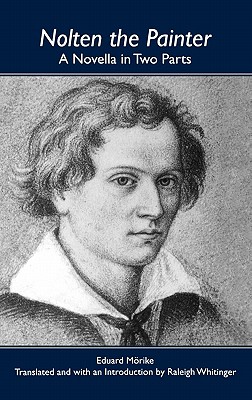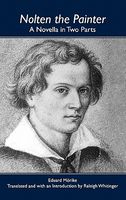- Welcome to FictionDB, Guest
- | My Account
- | Help

Nolten the Painter: A Novella in Two Parts — Eduard Morike

When one thinks of German artist-novels and Bildungsromane, works long available in translation come to mind--by Goethe, Novalis, Hoffmann, Stifter, Keller, or more recently by Mann, Kafka, Musil, or Grass. Yet Eduard Morike's provocatively subtitled Maler Nolten: Novelle in zwei Teilen (Nolten the Painter: A Novella in Two Parts, 1832) has remained neglected and misunderstood, and until now has never been translated into English, despite its obvious ties to other artist-novels and its striking modernity in playing with conventions of narrative authority and heroic identity. Witness the subtle irony of the opening sequence, in which the narrator is subverted by hints at his own clumsiness and intimations about the dire truths that lurk behind the protagonist Nolten's relationships to his male friends and to the seductive yet somehow frightening women in his life. Or the interplay between the narrator's attempts to make sense of Nolten's complex inner motivations in his loves and art and the ludicrously pompous pathos with which Nolten persists in speaking and thinking, as he concocts a heroic persona caught up in passion, intrigue, and tragedy. Fascinating too is the mysterious trail of the "Grenzganger," or border-line characters, with their hints at the dimension of "Gypsies, Tramps, and Thieves" that seems to threaten and at the same time to foster the complex unfolding of the realities of life and art that defy Nolten's all-too-artful "mastery." Raleigh Whitinger is Professor in the Department of Germanic Languages at the University of Alberta.
Genres
Click on any of the links above to see more books like this one.
